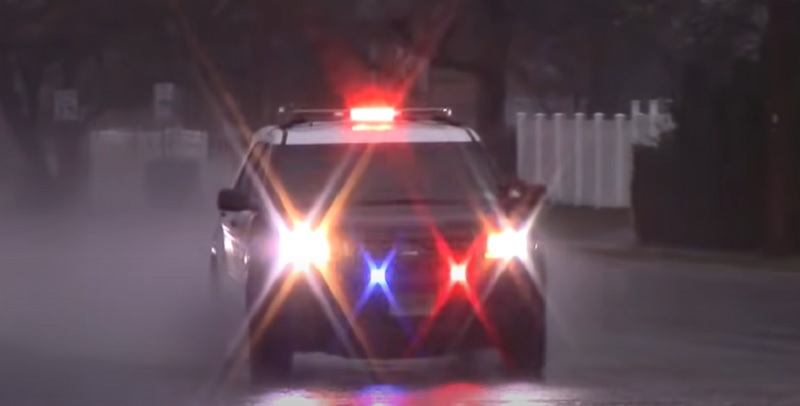
By Steve Pomper
There’s a crucial facet of police work that people rarely consider. This is partially because there’s nothing concrete to point to. Cops (and the community) never know how much crime they prevent just by being there.
How many crimes, property and violent, do cops prevent simply by rolling down an alley or walking a beat in a high-crime district? How many would-be burglars, assailants, rapists, even murderers had to alter their criminal trajectory when they saw a patrol car or officer appear around a corner?
The only people who know what crimes officers inadvertently prevented are the criminals. That person had his or her object or prey in sight but had to abort the crime because of that pesky cop doing his or her job well.
There’s also another aspect to cops being effective just by being there. It’s when officers affect or even change someone’s life and don’t even know it. Consider the example of Officer Miaja Jefferson of the Cobb County Police Department (CCPD) in Georgia. Officer Jefferson was one of the most unlikely people ever to become a cop.
This remarkable young woman is blessed with an innate tenacity that compels her toward a better life for her, her brother, and her child. And Jefferson credits one person for putting her on the right path: a police officer.
“I remember, specifically, going into foster care because that Cobb County Police officer came up to me, and you know, DFCS was involved. They wanted to kind of know what was going on because, at this point, school is finding out [about her and her brother’s homelessness],” she said.
“As she explained her situation to the officer, Jefferson said she felt someone listened to her for the first time in her life.
“‘That was the first time someone actually believed me,’ she said. ‘That officer really, really changed my life.’”
Prior to the fateful meeting, as Jefferson told 11 Alive News, she had been “on her own,” since she was 12 years old, in sixth grade, homeless, and also taking care of her brother. She said she had “No parents, nothing, I put myself through school.” Normally, when people say this, they mean college, not middle or high school.
Homeless and caring for her brother, one more thing happened. She became pregnant. She said before that, “people had no idea what was going on.”
Jefferson went into foster care, as her foster parents explained, with “next to nothing.” They said it was the least they’d ever seen a foster child arrive with. They said, “‘She literally came in, in pajamas, and that’s all she had and a baby,’ foster parent Jennifer Schiltz said. ‘And she never stopped. She never let her circumstances change her goals at all.’”
Because of that initial compassionate gesture from a police officer, Jefferson realized there were other people who also wanted to help her. She never realized she had a support system behind her she just couldn’t see.
The Schlitz family credits Jefferson’s “‘go-getter’ determination for her accomplishments.” But Jefferson says it was her “network of support that defined her next chapter.”
In that next chapter, she graduated from high school and then applied to Kennesaw State University, but she wasn’t accepted. So, pushing on, she chose other options and eventually transferred her credits to KSU and later graduated. She also earned a certificate in IT and accepted a job with a corporation.
But Jefferson says she saw all this as “groundwork for becoming an officer.” She said the more people seemed amazed at her accomplishments, the more it pushed her. She said the people “who told me I wasn’t gonna be able to do it” also motivated her.
In deciding to become a police officer, Jefferson said, “Why not join a community that changed my life? Why not join and change someone else’s life?”
She is currently going through the field training officer (FTO) portion of her training, and reports indicate she “continues to flourish.” Jefferson said she hopes someday to become a detective. Her home life is also flourishing, as she and her fiancé have recently purchased “a home for their growing family….”
She hopes her story will motivate others in similar situations to see they can also overcome seemingly insurmountable obstacles. She says kids should not allow “their past [to] dictate their future.”
Officer Jefferson says everyone who helped her is “still in her life” except for one person. Unfortunately, that exception is that officer who first helped her. She said she hopes to one day find the cop who listened “to her and put her on the path she’s following today.”